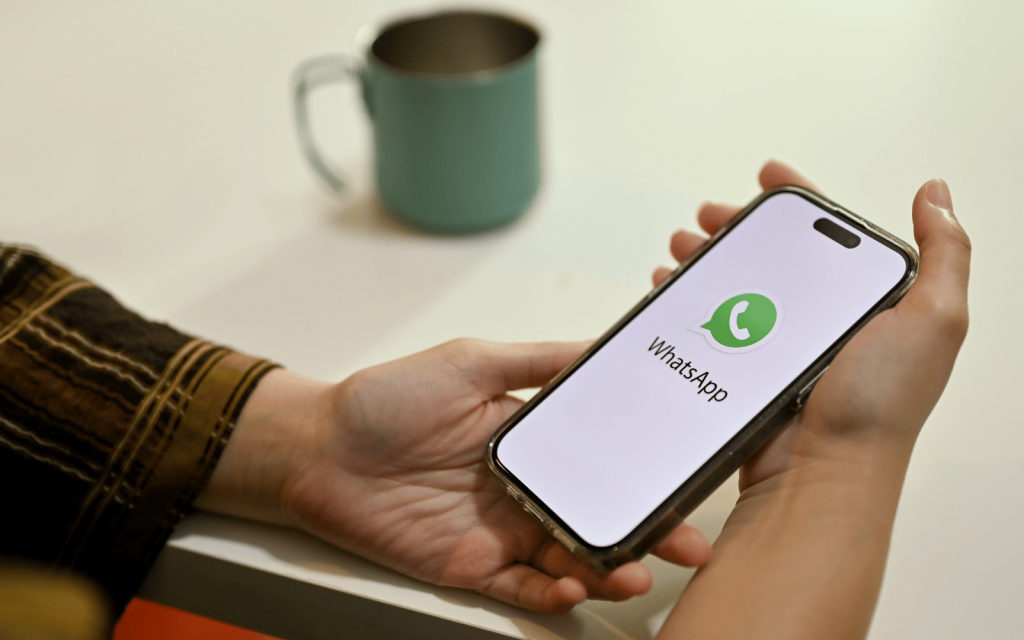When my phone unexpectedly crashed last year, one of the only problems I had was that my entire WhatsApp backup was lost. And… I couldn’t be happier. Despite losing every message I’ve ever sent or received on Meta’s now-indispensable messaging service, my life has not ended.
And now, my phone is about 10% less cluttered with a digital archive I clearly never needed.
Before the crash, I had noticed just how large the WhatsApp data was becoming on my iPhone. I never back up videos, only photographs. I have changed WhatsApp’s default setting to not save received images to the phone’s camera roll unless I download it myself. So there are no pictures sent to me that I don’t have a copy of.
The app said it had a 12GB file, while Apple told me it took up 25GB of storage. Obviously, all those voice notes are annoying for another reason, they’re exponentially bigger than a short text message. (Only people who sit in meetings or on calls think voice notes are irksome because they can’t be easily read; while these asymmetrical voice conversations are arguably WhatsApp’s greatest innovation.)
I’ve calculated that a 256GB smart device is the minimum I need for a phone or tablet, so that’s a lot of data for one app. The other data hogs, by the way, are Audible and podcasts, Spotify, my email and photographs. All of the latter are cloud-based services that I can control how much local data I need on my phone – or want.
But, as sentimental as I am about real-world things like family photos or ancestorial furniture, I’m not in the slightest about our species’ new-found obsession with text messaging. We think we need those old emails sitting at the bottom of our inbox.
But we actually never do. I found this out the hard way, several times, when I lost chunks of data or email archives. I am a fastidious backer-upper of my data. I have been for two decades. But I also know that when you do lose data, it’s generally not a train smash.
About a decade ago a friend who hosted my email was on holiday – doing a remote hike in New Zealand, I kid you not – when his email server crashed. After several frantic days, I moved my hosting to Google’s white-labelled Gmail offering, which I had conveniently set up long before.
When my friend returned, far more sanguine than I was, he transferred a file of my old email to me. But I never used it. I never needed to. After a few years of never opening it, I just deleted it.
It’s not the first time I have lost what seems like critical, I-can’t-live-without-it data. When I left my last full-time job at a newspaper, I remember being chuffed I could fit all my files onto an Iomega 100MB storage drive. When I set up my new computer, I discovered I had lost 10MB of whatever I had thought was indispensable. It was 10% of my entire digital life at that pre-cloud point around 2000.
Two months before I lost my messages, I had a forewarning of the redundancy of hanging onto WhatsApp chats, perhaps, when I unintentionally deleted my WhatsApp chain with my long-suffering business partner. Maybe because we use WhatsApp for the original intended purpose of what was first called instant messaging, there is nothing mission-critical in those chats, which are mostly operational.
What I am overly fastidious about is backing up photographs, important documents and emails. If you haven’t set up Google Photos to back up your smartphone, please do it now. I use two other services, as well as Apple’s iCloud backup – for photos and data.
Anything meaningful that was sent to me, or especially well-written, I have cut-n-pasted into my everything app, Evernote. Or I’ve taken a screen grab – which shows up in its own folder on an iPhone so it’s easier to find.
But what does it matter to me if I can’t find the series of WhatsApps I sent about our family holiday, along with pictures? The pictures are somewhere, and I have another storage archive I can call on. It’s called memory.
- This column first appeared in the Daily Maverick 168




